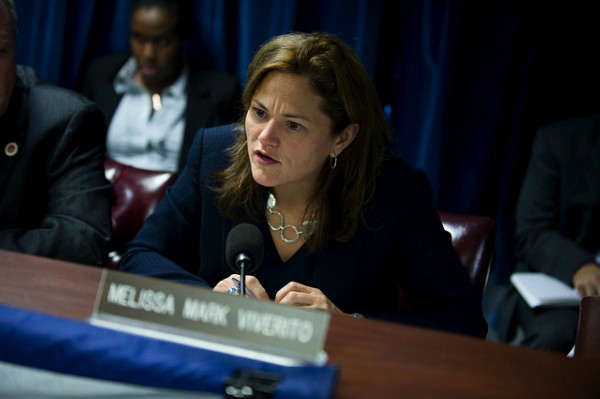
NEW YORK — Mayor Michael Bloomberg is expected to sign off on the City Council’s latest immigration reform legislation, further limiting the city’s involvement in federal deportation policy.
One of the two bills is an extension of legislation that Bloomberg already signed off on, which addressed how the Department of Correction coordinated with the Immigration and Customs Enforcement agency to process undocumented immigrants. The new bill better defines how the Correction department can work with ICE, while the second expands those same guidelines to the New York Police Department.
The Council passed the immigration bills 40-to-7 on Wednesday. Four members either abstained or were not present for the vote.
Immigrant advocate groups applauded the vote; Make the Road New York, the Legal Aid Society, New York Civil Liberties Union and Safe Horizon were among the groups who testified in favor of the bills during hearings in late January. The bills’ sponsors — which include Speaker Christine Quinn, Councilwoman Melissa Mark-Viverito and Councilman Daniel Dromm — argued the legislation was still line with federal precedent while preventing what they describe as needless deportations that break up families and communities.
“We can’t tell ICE what they can or can’t do,” Quinn said at a press event before the vote. “But we as the City Council can tell the Department of Correction what they can and can’t do and, in some cases, the police department what they can and can’t do.”
At the press conference, Quinn said that the previous bill did not run afoul of the federal government's immigration policy or procedure. Even so, the 2011 bill predated President Barack Obama's own executive action from June 2012 that forced the Department of Homeland Security to halt the deportation of some young immigrants.
The newly passed legislation stops both the jails and the NYPD from honoring notification requests from ICE, or detainers, before local authorities release immigrants from custody. Specifically, the agencies will not honor immigration detainer requests for individuals who do not have significant criminal records — including young and low-level offenders. They do allow for detainers for inmates convicted of a felony or misdemeanor within 10 years of the arrest, those pending charges, as well as for those with a pattern of violations or in any terrorism-related database.
The bills now head to Bloomberg’s desk, where they will likely be signed and approved. His chief policy adviser, John Feinblatt, worked with Quinn and the sponsors to draft the legislation. The mayor’s office confirmed its participation in the negotiations and that the bills are consistent with both local legislation and federal priorities.
However, when ICE first rolled out the controversial Secure Communities program that mandates that the police transmit suspects’ fingerprints to the Department of Homeland Security, Bloomberg complied.
“We will provide any data in the form required by the law,” said the mayor in mid-2012. “We are not above the law.”
Before the 2011 bill became law, the federal Criminal Alien Program directly linked the Department of Correction with ICE. Whereas immigration agents had the ability to assign detainers to any foreign-born inmates, the bill made it so the Department of Correction can only honor detainers for inmates with no criminal history who either have pending charges or pose a danger to the community. Within the first six months of its enactment, Mark-Viverto claimed, 267 inmates had been release who would have otherwise been detained.
As a sponsor for the bills, Mark-Viverito said during the press conference that the legislation remains aligned with the White House's stated directive for immigration reform through prosecutorial discretion. But she said the bill goes a step further by implementing it in policy.
“Unfortunately, while that’s been verbally said by the president, it’s not being implemented,” she said.
Mark-Viverito affirmed that the city is still subject to the Secure Communities program, albeit to her and some of her fellow legislators’ continued disapproval. As such, she said, passage of the bills do not direct the federal government change its own procedures.
Republican City Councilman Dan Halloran, one of seven council members to vote against the bills, disagreed and said that the burden for reform should not be on the city.
“I do not doubt for a minute that there are many people who are subject to immigration detainers who do not belong in the system,” Halloran said. “The problem is the federal government’s failure to act on immigration reform.”
Halloran lamented the negative consequences of the bill, which he said hurts law-abiding immigrants — both those with documentation and without — by grouping them with those who commit crimes, regardless of the crime’s severity.
Even though he acknowledged that the bill would pass despite his opposition, Halloran implied that the legislation contradicts the spirit of the criminal justice system.
“We’ve just exempted a whole bunch of criminals from due process,“ he said.
###
___
Image by Bill Alatriste, courtesy of the City Council.




